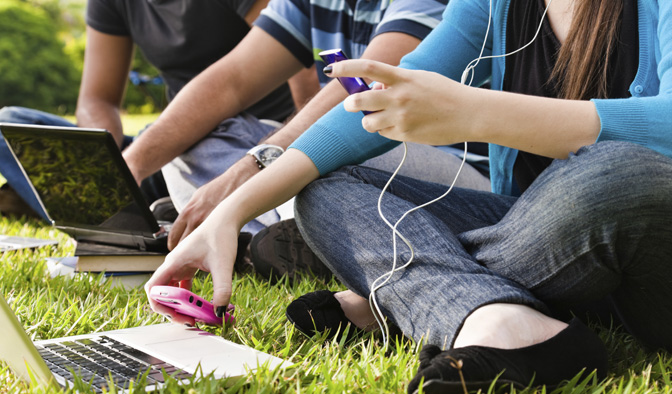I’m a big fan of Tali and GetScreen! She’s our Guest Blogger this month and has a lot to share.
By Tali Orad
Technology as a Homework Helper
With technology at the everyone’s disposal, especially kids, we see more and more students using it for their homework. Student surveyed shows almost third are using a tablet for it, while 65% are using a laptop for homework.
To make it even more challenging, 39% of 14 year old reported using a smartphone to complete their homework, 42% of 6th graders used them, while 57% of 8th graders did the same (based on a study from Teen Research Unlimited, done for the Verizon Foundation found).
There are great benefits for technology with doing homework
Many schools have an interface or learning management system, like Edmodo, in place that allows parents to view homework assignments and their own child’s progress. For parent of an organizational challenged child, it’s the dream come true.
For the child, the ability to finish and submit homework electronically, lower the chances of forgetting to submit or lose homework sheets.
Having the option to rely on technology make scheduling easier. With tools like google calendar, and other calendar apps, a 7th grader can have all assignment in the calendar. And Google can remind him or her to study for a test. It can also show the list of project scheduled for the following week, making it easier to plan ahead.
Plus, teachers are more accessible as many are on social media for the students to contact them and ask questions.
When getting down to do homework
In a study conducted by Dr. Larry Rosen, a psychology professor at California State University – Dominguez Hills, surveyed high school students and asked them how often they switch from studying to doing something related to technology such as checking email, social media, texting, or even watching TV. Across all grade levels, 80% of students reported that they switch between studying and technology somewhat often to very often. Rosen calls this “Continuous Partial Attention”, meaning that most of the time, students are not focused on studying but rather are moving their attention back and forth between studying and various forms of technology.
Rosen explains, “Young people’s technology use is really about quelling anxiety…they don’t want to miss out or to be the last person to hear some news (or like or comment about a post online).” One of the major problems with texting and posting on social media sites while in class and/or studying, is that “they draw on the same mental resources—using language, parsing meaning—demanded by schoolwork.” Ultimately, he concludes, if we want students to learn and perform at their best, smart phones and other online distractions must be managed.
This, as you might expect, affected their grades, and quality of work. Students who were less distracted had higher GPAs than students who switched back and forth often and those who regularly check Facebook or text messages. Students who had strategies for studying also had higher GPAs per Rosen’s findings.
Stay focus
If we want our children to succeed at school and be able to utilize technology, we need to set boundaries. Discuss with your child the appropriate time and place to use technology.
Teach him or her to take technology breaks to separate doing homework from using technology.
Use parental control tools to block their usage off their devices when it’s time for homework.

